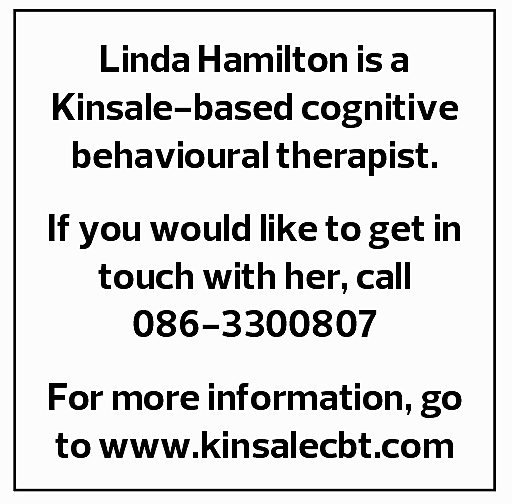
In my last column, I explored why some people seek criticism to confirm their negative self-views.
Today, let’s shift gears and look at how to break free from this cycle and embrace a healthier way of relating to yourself and others.
As noted previously, some people routinely engage in negative feedback-seeking (NFS) (‘I don’t deserve any better, do I?’) in order to confirm negative views they hold of themselves.
NFS is rooted in negative core beliefs, such as ‘I’m not good enough’ or ‘I deserve criticism’.
Beating up on oneself may be painful, but it can also feel predictable, familiar, consistent and safe.
To try and change any behaviour, you must first appreciate it is just not in your interest to do what you are doing.
It’s important to know that NFS is closely linked to depression.
Seeking out criticism worsens emotional pain and feelings of inadequacy, and thus reinforces depressive symptoms.
It’s also important to remind oneself that NFS can frustrate friends, family, and colleagues.
When people consistently reject praise or seek out criticism, it can leave others feeling ineffective or helpless in offering support.
Over time, this may lead to conflict, emotional distance, or even relationship breakdowns.
This can drive loneliness and reinforce beliefs like, ‘No one truly cares about me’.
By actively seeking criticism and dismissing compliments, you train yourself to view positive feedback as inaccurate, unreliable, and insincere.
This makes it harder to accept or believe affirming words from others, perpetuating feelings of isolation and low self-worth.
NFS often stems from an attempt to avoid the perceived ‘risk’ of accepting praise.
Ironically, this avoidance makes individuals more vulnerable to emotional distress. Receiving criticism may feel predictable, but it reinforces shame, guilt, or sadness, keeping you stuck in a negative emotional state.
Criticism isn’t inherently bad – it can be constructive.
However, the type of feedback sought in NFS is often overly harsh or unhelpful.
This prevents you from receiving balanced input that could help you grow and learn.
Understanding these negative consequences is important.
Quite simply, it’s not a good idea to beat up on oneself or to routinely seek criticism from others.
How to fix your reliance on NFS
With any habitual behaviour, change can initially be uncomfortable. Positive feedback can feel unsafe, but learning to accept it is key. Start small: when someone gives you a compliment, thank them for it. Don’t deflect or minimise it.
Don’t go with your automatic negative thoughts. When you get praise, you may think, ‘They don’t mean it’. Instead of going with this thought, be open to the idea that positive feedback may be a genuine reflection of how others see you.
Reflect on compliments. Write down positive feedback you’ve received and revisit it regularly. Over time, this can help you internalise affirming messages.
NFS often strains relationships, as others may feel frustrated or helpless. Repairing these dynamics is crucial. Let trusted friends and family know you’re working on breaking this habit.
Criticism can feel emotionally ‘safe’, so learning to tolerate positive emotions is important. When you feel the urge to seek criticism, pause and observe your emotions. Ask yourself, “What am I feeling, and why?” Lean into discomfort. Over time, this can reduce the anxiety associated with praise.
Set personal boundaries. When tempted to make a self-critical comment, pause and ask, ‘What am I hoping to gain? Am I going about this in a helpful or unhelpful way?’
Aim to cultivate self-compassion. Don’t be icky about this idea, and remember that there’s nothing wrong with treating yourself with kindness, as you would a friend.
Breaking the cycle of negative feedback-seeking takes time and effort, but it’s possible with awareness, self-compassion, and practice. By challenging unhelpful beliefs, tolerating positive emotions, and fostering healthier habits, you can create a more balanced and affirming view of yourself – and improve your relationships with others along the way.









